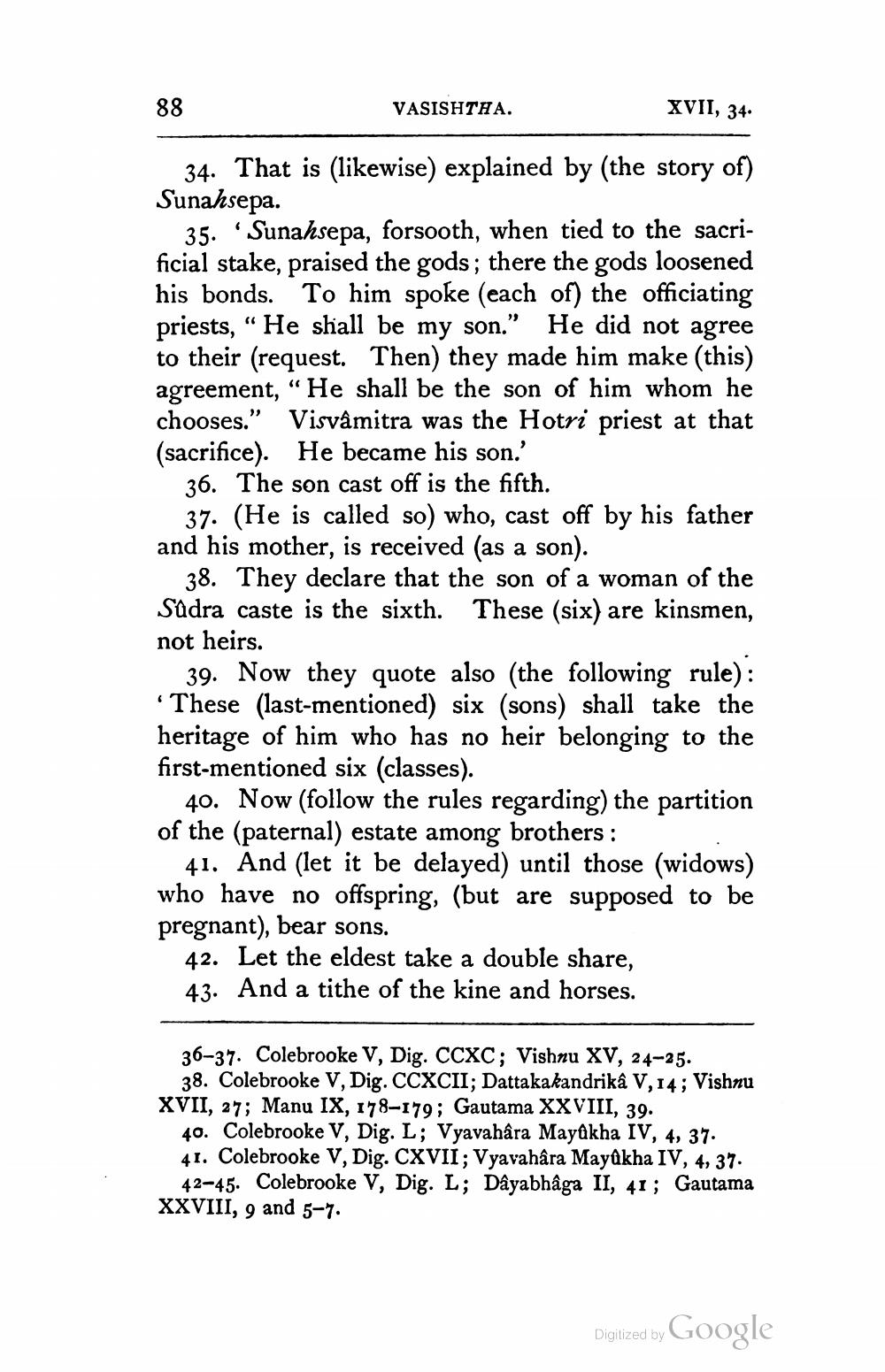________________
88
VASISHTHA.
XVII, 34.
34. That is (likewise) explained by (the story of) Sunahsepa.
35. 'Sunahsepa, forsooth, when tied to the sacrificial stake, praised the gods; there the gods loosened his bonds. To him spoke (each of) the officiating priests, "He shall be my son." He did not agree to their (request. Then) they made him make (this) agreement, “He shall be the son of him whom he chooses.” Visvamitra was the Hotri priest at that (sacrifice). He became his son.'
36. The son cast off is the fifth.
37. (He is called so) who, cast off by his father and his mother, is received (as a son).
38. They declare that the son of a woman of the Sudra caste is the sixth. These (six) are kinsmen, not heirs.
39. Now they quote also (the following rule): 'These (last-mentioned) six (sons) shall take the heritage of him who has no heir belonging to the first-mentioned six (classes).
40. Now (follow the rules regarding) the partition of the (paternal) estate among brothers :
41. And (let it be delayed) until those (widows) who have no offspring, (but are supposed to be pregnant), bear sons.
42. Let the eldest take a double share, 43. And a tithe of the kine and horses.
36–37. Colebrooke V, Dig. CCXC; Vishnu XV, 24-25.
38. Colebrooke V, Dig. CCXCII; Dattakakandrika V,14; Vishnu XVII, 27; Manu IX, 178–179; Gautama XXVIII, 39.
40. Colebrooke V, Dig. L; Vyavahâra Mayakha IV, 4, 37. 41. Colebrooke V, Dig. CXVII; Vyavahâra Mayûkha IV, 4, 37.
42-45. Colebrooke V, Dig. L; Dâyabhâga II, 41; Gautama XXVIII, 9 and 5-7.
Digitized by Google




